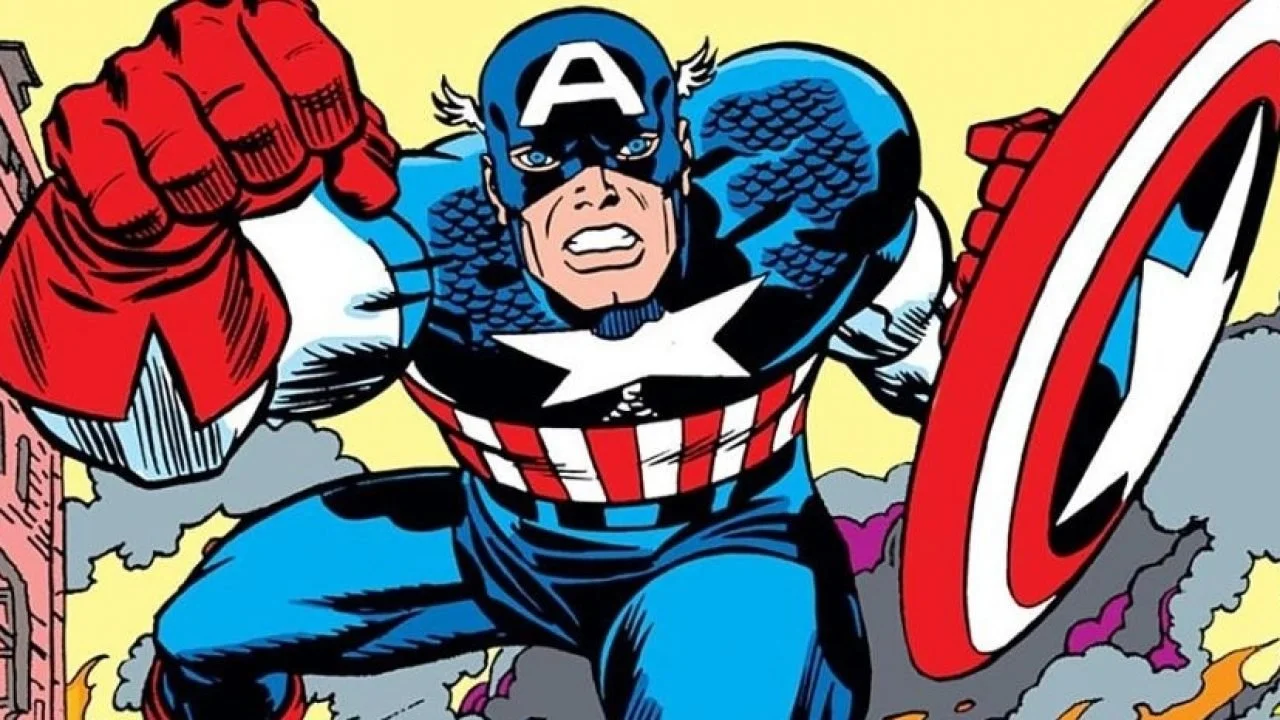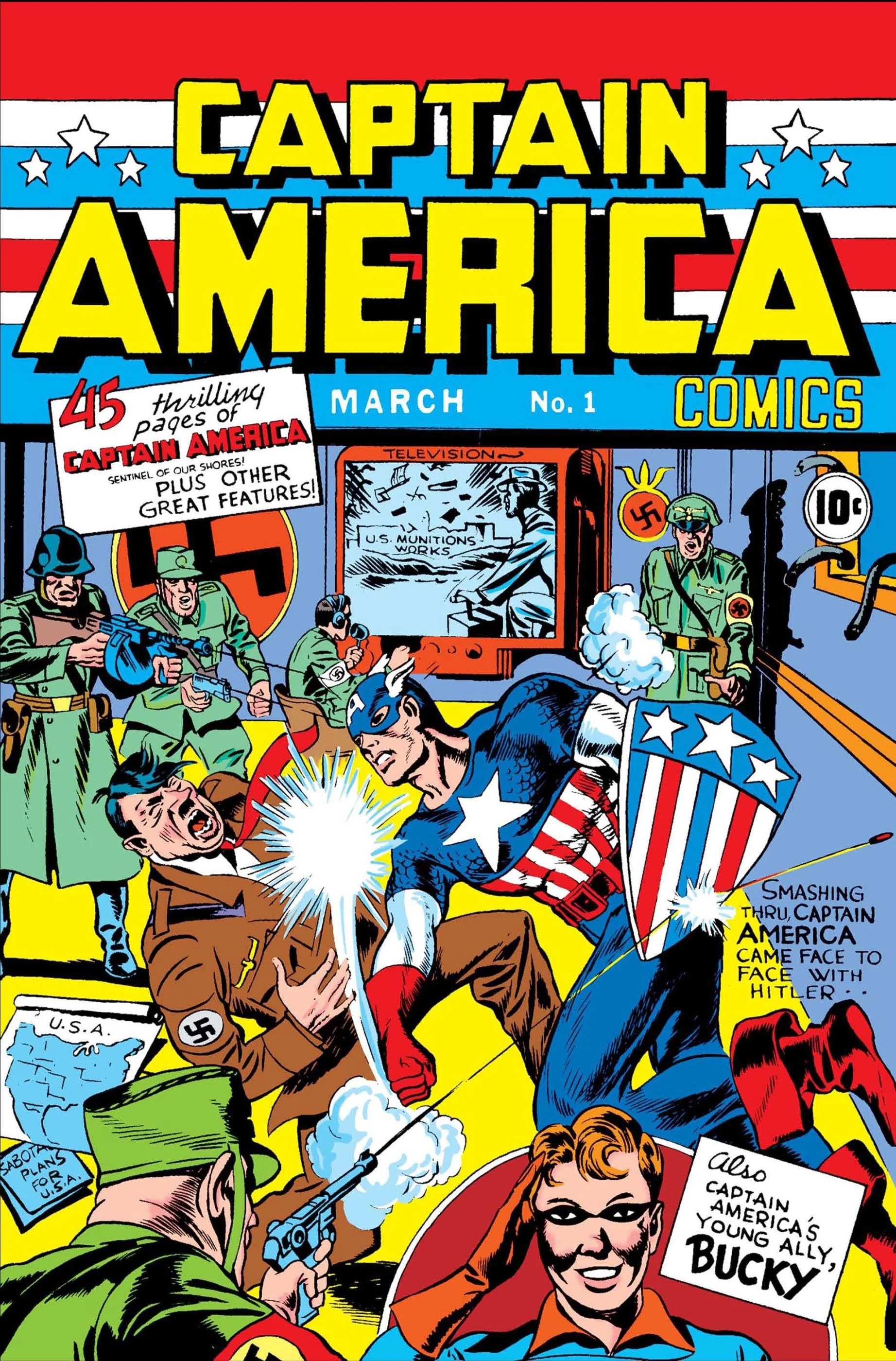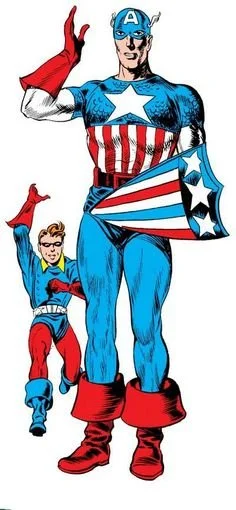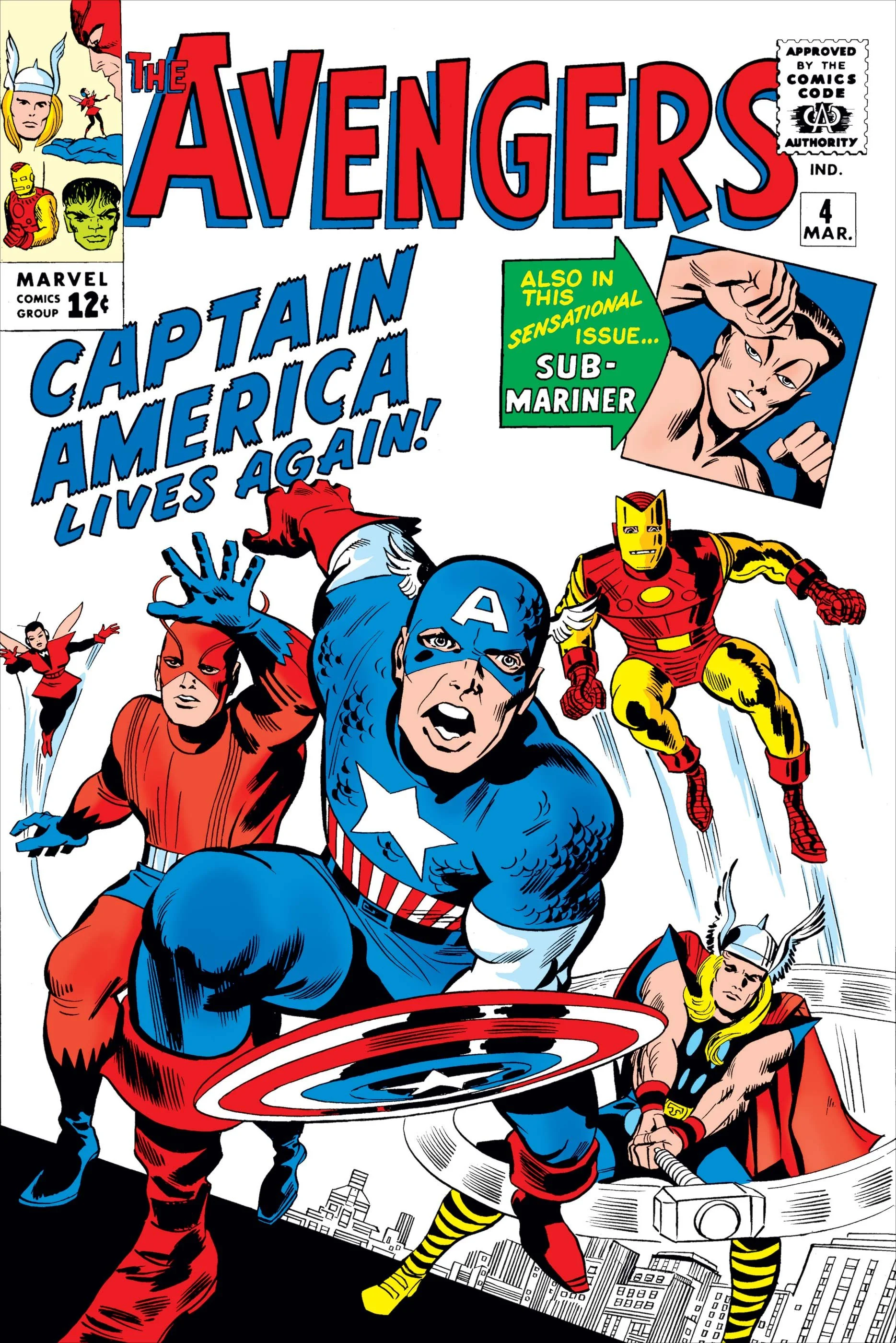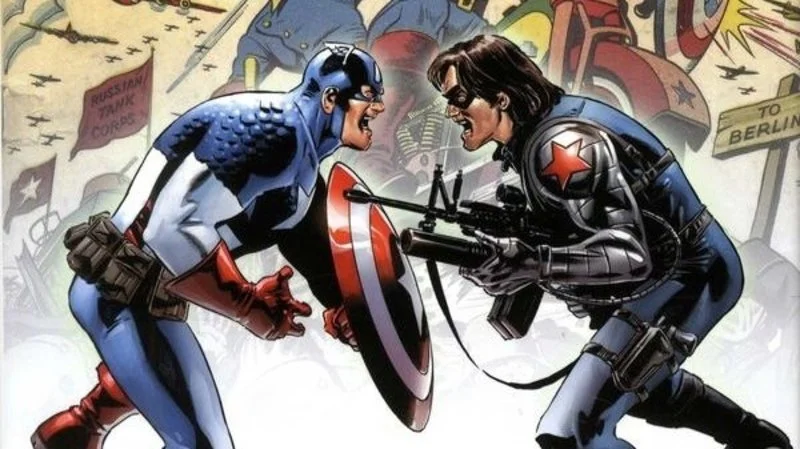7 Interesting Facts About Captain America
Captain America is one of the most recognized characters today, inside and outside the world of comics. The interpretation that Chris Evans gave in the Infinity Saga films of the MCU gave him even greater popularity. But there are certain facts perhaps not so well known in the character’s history.
1. A time before Marvel
Contrary to popular belief, Captain America did not begin within Marvel Comics itself, but rather with what was called Timely Comics at the time (becoming Marvel in the 1960s). It was created by Joe Simon and Jack Kirby, and the first issue came out in March 1941.
RELATED:
2. The blow to Hitler
As portrayed in a sequence of Captain America: The First Avenger (2011), the first cover on which Cap was featured shows him beating Hitler, a scene that would already set the tone for why the character was created: a patriotic banner that would fight against the Nazis and boost the morale of soldiers and the rest of the American population.
3. Captain’s America Partner
The well-known Bucky Burnes, former Winter Soldier and today known to be played by Sebastian Stan within the MCU, has a inspiration taken from real events. He was co-created at the same time as Steve Rogers and was named after his creator's friend, Joe Simon, a basketball player from his high school
5. A man out of time
As Captain America’s inception was based on the context of World War II, the character lost relevance at the end of the war and went into suspension for years. The idea that he was lost in the ice for years, eventually being discovered and joining the Avengers, was thanks to the ideas of Stan Lee and Jack Kirby. Originally, Cap was thawed out and joined the Avengers in 1964. In this way, he became the leader of such a group and the character was reconfigured to be settled in that context.
4. Alternative versions
There are plenty of ucronian worlds where Steve Rogers assumed different backgrounds and roles: in Brian Michael Bendis and Olivier Copiel’s House of M (2005) he survived World War II, became an astronaut, and later was the first human to walk on the Moon; in Andy Kubert and Neil Gaiman's 1602 (2003), the 21st-century Captain America is brought back in time to fight The Purple Man, where he assumes the identity of a native known by the name of Rojhaz; in Bullet Points (2006), by J. Michael Straczynski and Tommy Lee Edwards, Dr. Abraham Erskine is killed before making the serum so Project Rebirth is canceled and Steve Rogers is never turned into Captain America. On the contrary it accelerates the activation of Project Iron Man, which Rodgers participates in (elements of this story were used in the animated series What If…?).
6. A renegade Captain America
In the seventies Captain America is taken over by Steve Englehart. The transformation caused at the hands of this author was the deepest in the character so far. In the Secret Empire Saga (1974), Captain America is disgusted by all the corruption that floods the United States Government (in a clear allegory to the Watergate case), and decides to leave behind the mantle of his character, to become Nomad. In this way, in this series adapted to the times, Captain America acquires a strong tone of social and political criticism. This is later shown in the MCU version of Captain America: Civil War (2016) and Avengers: Infinity War (2018), where he’s not wearing his typical red and blue suit, but a black one.
7. Noir and espionaje
It could be said that Ed Brubaker is one of the best current writers and the last one who greatly influenced Captain America to become its current version. He always explored the genre in Lowlife (1997), Sandman Presents: Dead Boy Detectives (2001) and Scene of the Crime (1999) and in the eight years he worked on the character he brought exceptional character elements to Captain America, giving him depth and tragedy. He saw him as a Shakespearian character, taken out of his time to live in the present and haunted by a brainwashed version of his old friend. But, despite all of that, he always stands out for the doing the right thing.
READ NEXT:
Sources: Britannica, Marvel, Celebrity, Marvel Fandom, Screenrat, Marvel Fandom

